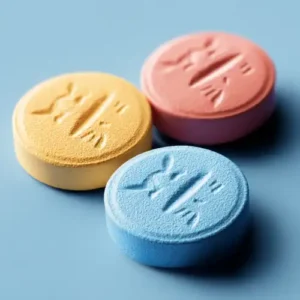Cannabis edibles are food products infused with tetrahydrocannabinol, a psychoactive ingredient of cannabis. Otherwise known as THC. These edible might be baked goods, sweets, and chocolates, or lozenges; sometimes they may even be beverages. They might look innocent but contain a banned substance that alters the state of mind. If you choose to indulge in using them recreationally, you really need to know how drug testing works and the potential consequences.
The Rise of Cannabis Edibles
You’ve probably noticed the explosion of cannabis edibles in recent years. From gummy bears to granola bars, these treats are popping up everywhere. But why the sudden surge? Well, it’s not just about getting high anymore. Many folks are turning to edibles for their potential health benefits, like pain relief or better sleep. Plus, let’s face it — munching on a cookie beats inhaling smoke any day!
But here’s the kicker: edibles aren’t just a walk in the park. They pack a punch that can catch you off guard if you’re not careful. Unlike smoking, where you feel the effects almost instantly, edibles take their sweet time. You might think, “This brownie isn’t doing anything,” and reach for another… only to find yourself on a rollercoaster ride an hour later!
So, what’s a curious cannabis consumer to do? Start low and go slow. That’s the golden rule. And remember, patience is a virtue — especially when it comes to edibles. Your body will thank you for it!
Edibles and Drug Testing
Unlike smoking or vaping cannabis, edibles are more slowly absorbed into the body and act for a longer time. You might need to wait 1-2 hours after eating an edible associated high. The euphoric effects also linger for as long as 12 hours because they are metabolised more slowly. This extended timeframe makes it more likely for cannabis to be detected in drug tests after using edibles.
The drug testing involves the examination of urine, blood, saliva, or hair for traces of illegal drugs. They are not perfect methods of testing, but generally, they are reliable. Depending on dosage, speed of metabolism, the frequency of use, and the method chosen, cannabis can be detected within a time range from a few days to months.
The detection windows for edibles usually extend further compared to smoking or vaping:
Urine testing can detect cannabis consumed in edibles up to 30 days, compared to 3-7 days after smoking. Blood tests may show edibles within 3-4 days and inhaled cannabis at 3 hours to 2 days. Saliva and hair testing represent the same window of detection, regardless of the route of administration.
This leads to more THC accumulation in the fatty tissues of the body and results in slower excretion rates from the body in frequent edible users. Even a single use can show up, especially in urine or blood tests. Most employers and authorities consider any attempts at beating or cheating drug tests an offence.
In short, while edibles do offer a discreet and palatable method of getting high, they might bring adverse legal and career consequences in the event that they are detected in drug tests. Abstinence from all cannabis products is the safest if you fall under mandatory drug testing. For recreational users who would not like to fail a drug test, the rule of thumb is moderate and responsible usage. Abstinence, however, is the sure bet to pass. Basically, before consuming a cannabis edible, consider both the short-term enjoyment and the long-term implications.
Photo by Anthony Cunningham for Zoom Testing
Zoom Testing is a leading UK drug testing company and a supplier of Drug Test Kits.
This post was originally published in August 2023. It was last updated in July 2024.





